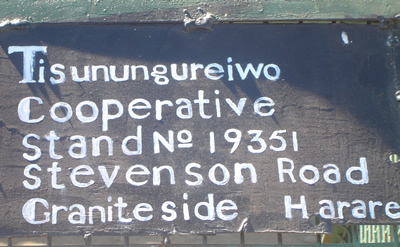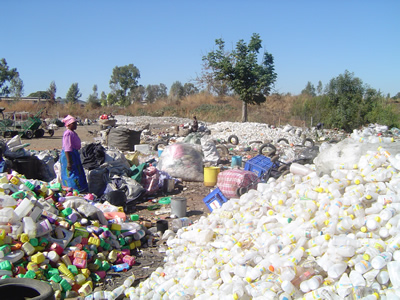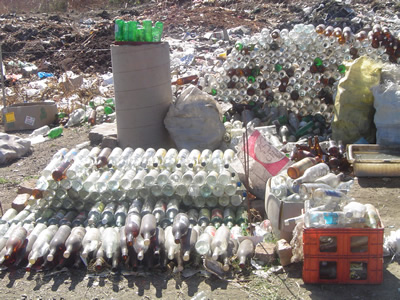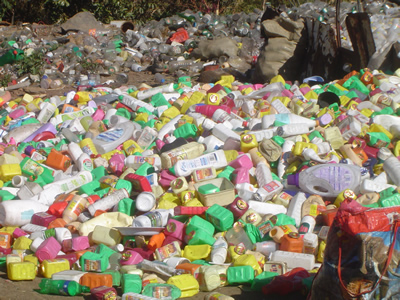Posted on August 5th, 2011 by Marko Phiri. Filed in Economy, Governance, Uncategorized.
Comments Off
Had a few good laughs watching ZBC news last night when a senior education official in one of the Mashonaland provinces said President Mugabe had donated computers in schools where there is no electricity. Nothing new really. Sydney Sekeramayi was officially opening a computer lab at some rural school, and the education official’s comments were indeed telling and I wondered why the reporter had allowed that comment to make it to the bulletin considering it was not very flattering if you think of it. The other week Sunday Mail [July 24-30] ran a story with the headline “REA please give us electricity.” REA of course being the Rural Electrification Agency, and it will be recalled that this was one of the vehicles used by the then ruling party to galvanise support in the rural areas, and in the Sunday Mail story it was the rural folks themselves who were making the appeal for magetsi kuvanhu. The Sunday Mail reported: “Many rural areas are still “in the dark,” more than a decade after the launch of the programme.” You then have to wonder who advises the President when he makes these computer donations to schools in areas where that education official says there is no electricity. But then as we have seen it with local politicians for a long time: what they do or say does not have to make sense, just as long as they are seen to be doing something. So much for an informed electorate in an alleged democracy!
Posted on August 4th, 2011 by Elizabeth Nyamuda. Filed in Uncategorized.
1 comment filed


It is so easy for one to throw litter on the streets without caring about who then picks it up. Some of this litter finds its way into the city’s water sources, which in turn means that the City Council has to fork out millions to purify the water. Failure to do so then means residents will receive a short supply of this precious resource. The possibility of it being contaminated and dirty cannot be ruled out.
Tisunungureiwo Cooperative is a community-based organisation that recycles waste material. The cooperative collects the rubbish from unemployed people who move around the city of Harare.
It is the Cooperative’s dream to build solid infrastructure at their complex and also be able to do the recycling themselves. For example, melting plastic bottles or grinding metal objects. They also wish to have a supply of electricity and water, both of which they currently don’t have. Some members of the group have received training in waste management but they also wish to further their knowledge and the skills of all their members.
These photographs show the work of Tisunungureiwo Cooperative. This is a way they earn their living by being responsible citizens.


Posted on August 4th, 2011 by Elizabeth Nyamuda. Filed in Governance, Uncategorized.
1 comment filed
The Parliament of Zimbabwe is attempting to make changes to the Electoral Act (Chapter 2:13). The Electoral Amendment Bill, 2011, currently before Parliament seeks to make several changes to the existing law with a view to promoting free and fair elections. Dr Alex Magaisa last week presented a lecture on the analysis of the Electoral Amendment Bill. This event was organised by Zimbabwe Election Support Network (ZESN).
Alex, who is a lecturer at the University of Kent in the Law School, broke the Bill into simple and edible modules for all to understand. Often these bills come in many pages, filled with legal terminology that will not be easily understood by the majority of citizens. Among other things, Dr Magaisa emphasised the need to remove deceased or absent voters from the voters roll. A report published earlier this year by SAIRR indicated that persons listed on the voters roll are questionable as some of them their ages go over 109 and many were all born surprisingly on the same day.
Dr Magaisa said that in the Bill there was a provision for a mechanism to allow for the removal of the dead, and those absent from the country. It does so by allowing the relatives of the deceased, or absent voter to require the Registrar’s Office to remove the persons upon proof. He said however that people need incentives to go forth and report.
For example in Mozambique they ran a campaign in which relatives that managed to inform the Electoral authorities of their deceased were given state assisted burials. Dr Magaisa put forward his own suggestion, which he deemed to be more practical in the Zimbabwean context. He said that the Registrar’s Office has records of deceased persons since it is a prerequisite for a burial order to be produced before one is buried.
In his words, “There should be a process of inter office exchange of information, so that upon notification of death to the Registrar General’s Office this information should be passed on to the Commission which will then effect the removal of the person”.
This is one of the many issues that need to be addressed to ensure credible elections in Zimbabwe.
Posted on August 3rd, 2011 by Lenard Kamwendo. Filed in Media, Reflections, Uncategorized.
2 comments filed
After being chosen to represent Zimbabwe on Big Brother Africa Wendall Parson did not enjoy a fair share of media publicity like his fellow housemate Vimbai Mutinhiri. Barely 2 months ago The Sunday Mail published an article entitled “Who is Wendall?” Instead of supporting our Zimbabwean representative the paper went on to publish a racially charged article questioning Wendall’s citizenship.
Despite the racist reporting, the people of Zimbabwe went on to prove that our country is made up of people of different backgrounds. Since Wendall is white the Sunday Mail reporter just assumed he is foreign only to be proved wrong with positive response and support Wendall got from fellow Zimbabweans. The smear campaign and bad journalism actually propelled Wendall Parson to victory much to the surprise of the reporter. We have so many Zimbabweans who are flying our flag high representing the country in various activities regardless of race, colour or creed.













